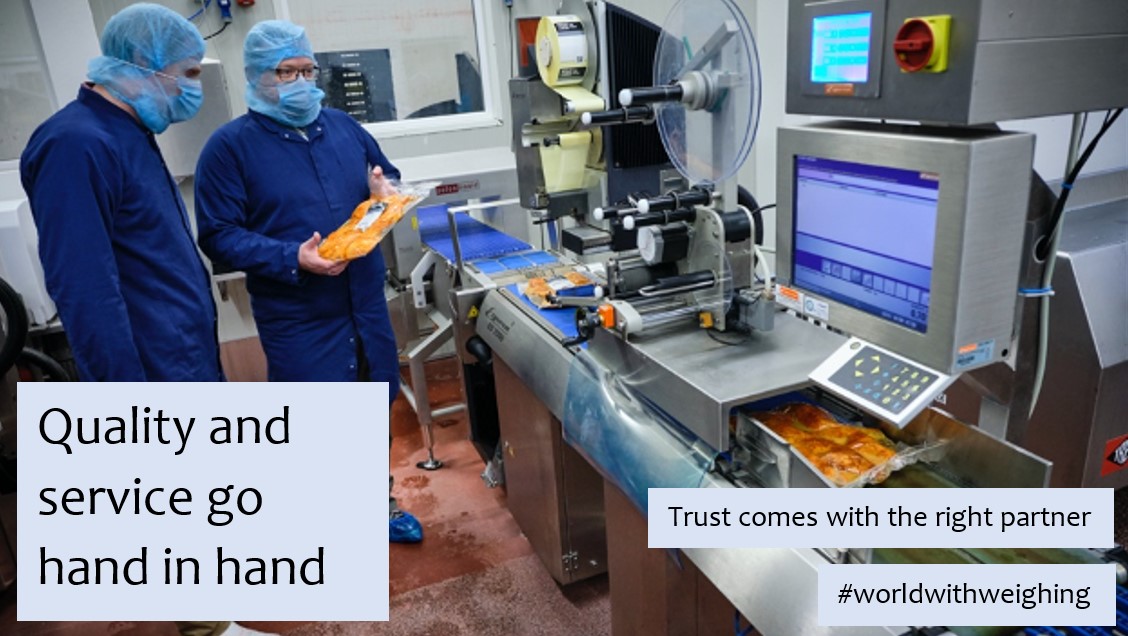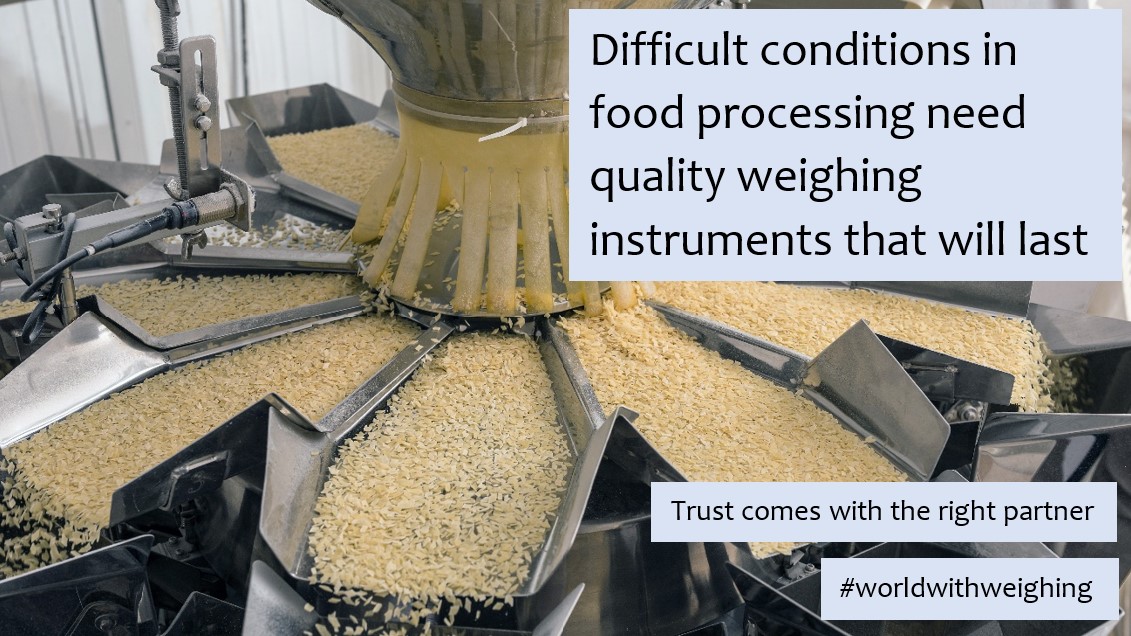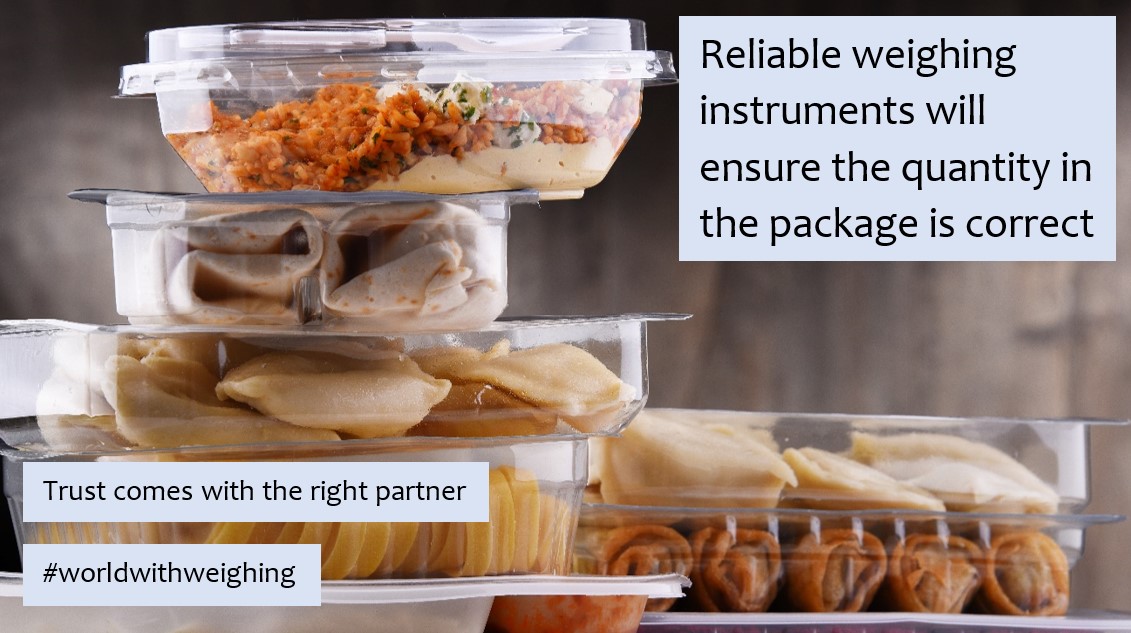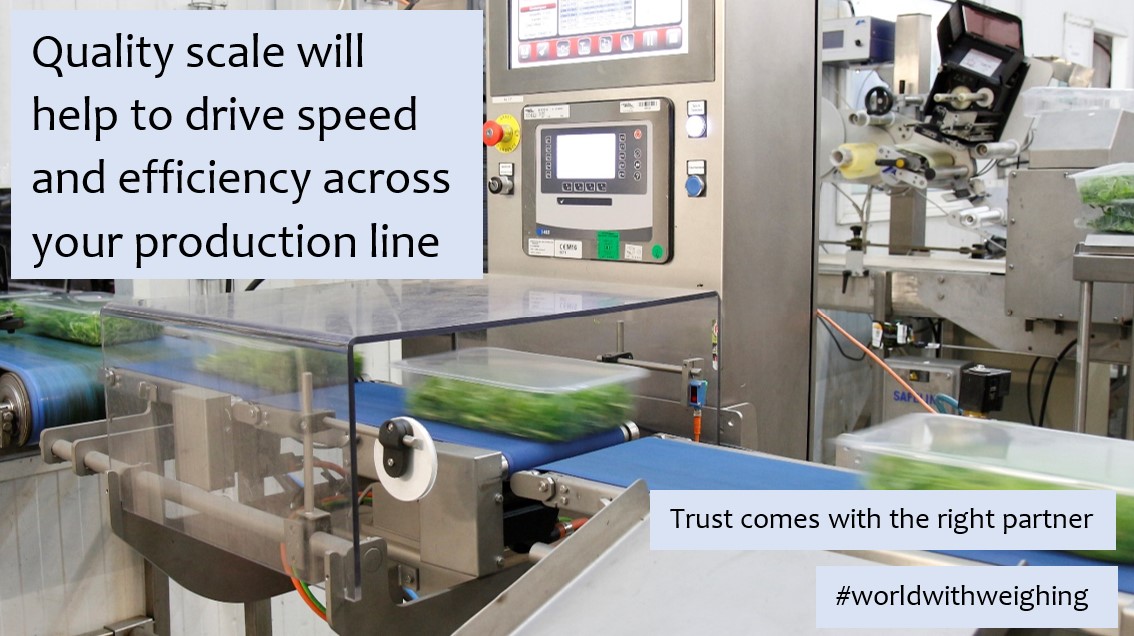Weighing instruments in the food sector
Reliable weighing instruments in the food sector guaranteeing you get the quantity of food you pay forWeighing instruments in food production
Every product has its individual weight. Due to regulated consumer protection every consumer should pay exactly per weight of the product he or she is going to purchase. This is valid for the entire range of food products, but it is mostly visible for fresh food products.
For example, the steak you purchase, where it doesn't matter whether it is a pre-packed steak or if it is steak directly from the butcher´s counter. You have to pay the price measured by weight. Independent which type of meat you are going to purchase, the price is calculated by weight.
Or the example of prepacked grapes you buy in the supermarket: They are often packed by fixed weight ranges such as 250g or 500g. Before these products arrive fresh at the supermarket each individual pack was controlled by special automated weighing and labelling systems to ensure that the printed weighing information is correct.
However, weighing is not only critical with fresh food products. Take a look at the cookie package on your kitchen table. The weighed is printed on it. Same for the muesli next to you or the little milk package for your coffee. Moreover, they are all produced with weighing instruments that guarantee the quality and consistent taste.
Why are accurate and reliable weighing instruments important for food industry?
Accurate and reliable weighing instruments are needed for price, costs and quality. On the one hand consumers have to be protected. There has to be a clear information about how much the food product in the store weighs. By law it is regulated that if a package of cookies is declared with 100g, the weight of this cookies is almost exactly 100g and the consumer may not be deceived.
On the other hand, food processors want to make sure to deliver to the supermarket products with an exact weight and exact price per weight. If they would overfill their product packages in comparison what weight printed on package, they would make a loss from a processors point of view. Due to the weighing accuracy within the food production environment is also a very important topic. Every gram counts for processors.
Additionally, businesses in the pre-prepared food industry invest in the development of the best recipes for their products. When producing the food at a larger scale they want to be able to trust the weighing instruments to guarantee the same taste and quality of each product. Modern weighing instruments enable to business to produce the consistent quality in an efficient manner.
Furthermore, it is vital in the process to work without any disruptions. Food processing facilities can be tough places for weighing instruments. Quality weighing instruments will less likely break down in these circumstances and if this happens a quality partner makes sure a fast solution is found. At the same time, the process needs to be efficient and the weighing instrument shouldn’t be the bottleneck. Modern weighing instruments can weigh faster to keep up with the efficient production.
What are the innovations regarding weighing instruments in the food industry?
Digitalisation leads to many innovations in weighing technology. For automated, industrial processes it enables faster weighing processes as well as a fully online management of weighing data and information. In automatic mixing ingredients to produce the final food the highly increased speed of the modern digital scales allows better accuracy to add each ingredient resulting in higher repeatability of the recipe.Weighing data within industrial food process have to be shared and stored during several production steps until the food product is getting delivered to the supermarket. Digitalisation enables structured weighing data management and data storage. This increases the production performance and production safety.




